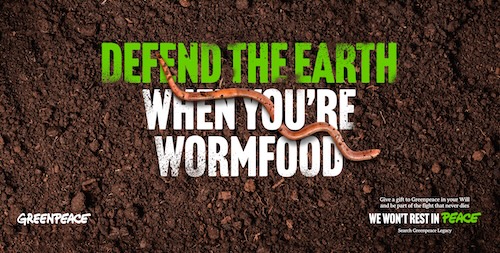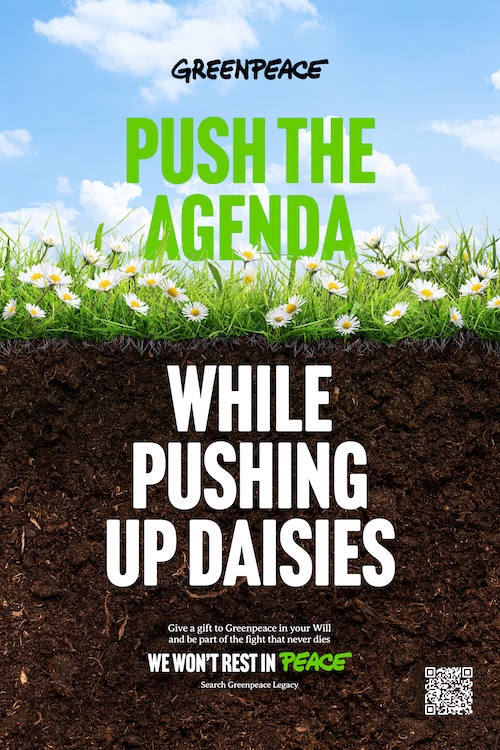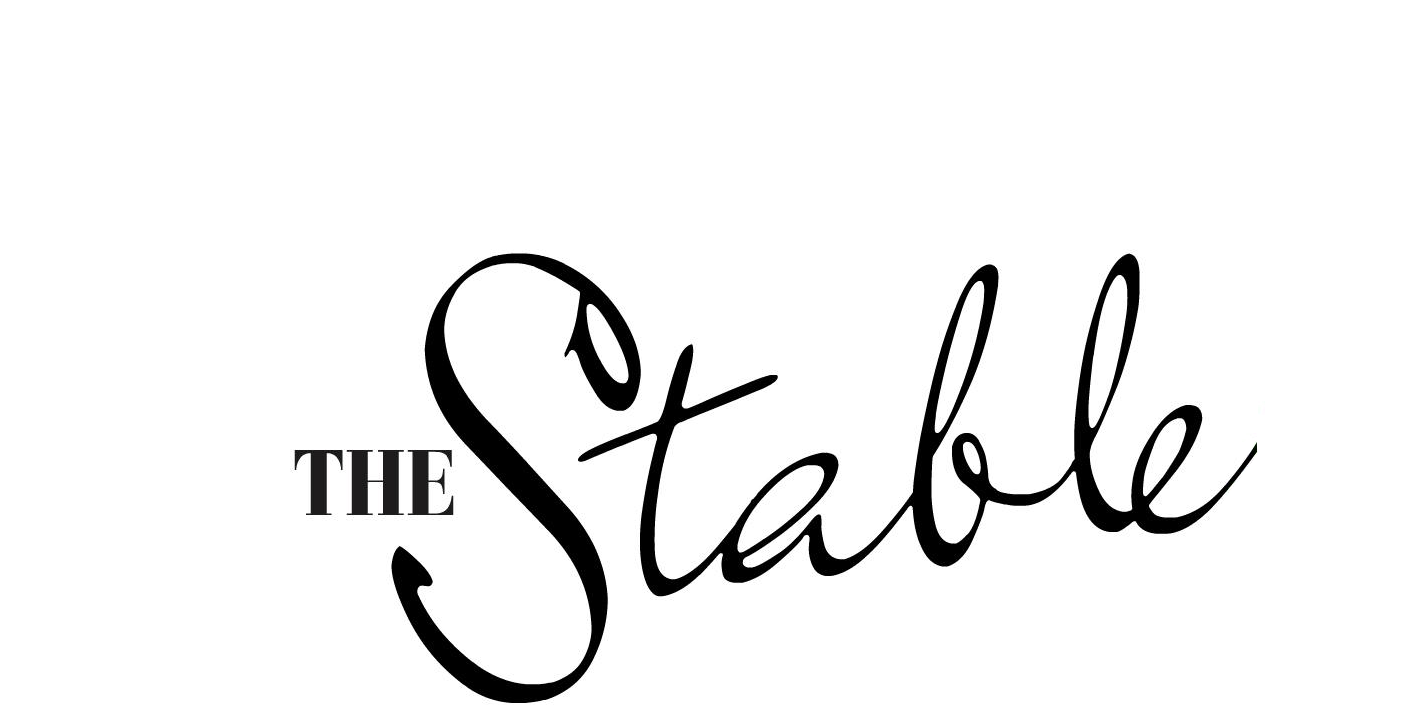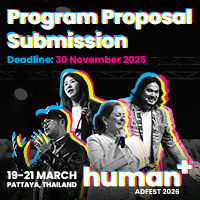Legacy giving advertising is usually rather sombre. Careful and euphemistic, it offers platitudes for rewards and mostly reminds you that death is coming.
Elvis’ legacy campaign is nothing like that. We Won’t Rest in Peace defies the traditional clichés and follows Greenpeace’s provocative demeanour instead. The campaign offers its supporters the opportunity to fight for planet earth, even after they’re buried under it.
We Won’t Rest In Peace is Greenpeace’s largest legacy fundraising initiative to-date, and supports the organisation’s ambitious 10-year strategy to increase legacy giving and boost trust in its impact.
The full campaign will cover radio, press, outdoor, and social; with phase two of the campaign going live in 2026.
Media planning and buying was handled by The Kite Factory. Greenpeace appointed elvis to create its evergreen legacy proposition following a three-way competitive pitch. The agency and Greenpeace have partnered on campaigns in the past, including They Can’t Arrest This Billboard, which won Gold in the Ocean Outdoor Digital Creative Competition 2024.
John Hutchin, head of key relationships marketing at Greenpeace, stated, “Gifts in wills fund one in six Greenpeace campaigns, so this is an incredibly important initiative for us, and we couldn’t be more excited about it. We Won’t Rest in Peace is a powerful call to arms, proving that the fight for our planet doensn’t end with us. By leaving a gift to Greenpeace in your will, you can ensure that the fight for a healthy planet lives on of generations to come.”
“This campaign is unlike anything the legacy category has seen before,” added Camilla Yates, managing partner, strategy at elvis. Most legacy ads are a depressing signal that the end of life is approaching. But our audience doesn’t feel old. They’re still rebels at heart. They’re the generation that grew up with Greenpeace and what better way to leave this life than by continuing the fight for a healthy planet for future generations?”

Alex Vasile, creative director at elvis, commented, “By using humour we’ve reframed how people think about death, which feels relevant for a lively, future-facing organisation like Greenpeace. We expect it to raise eyebrows, but most importantly, we hope it raises legacy donations.”














